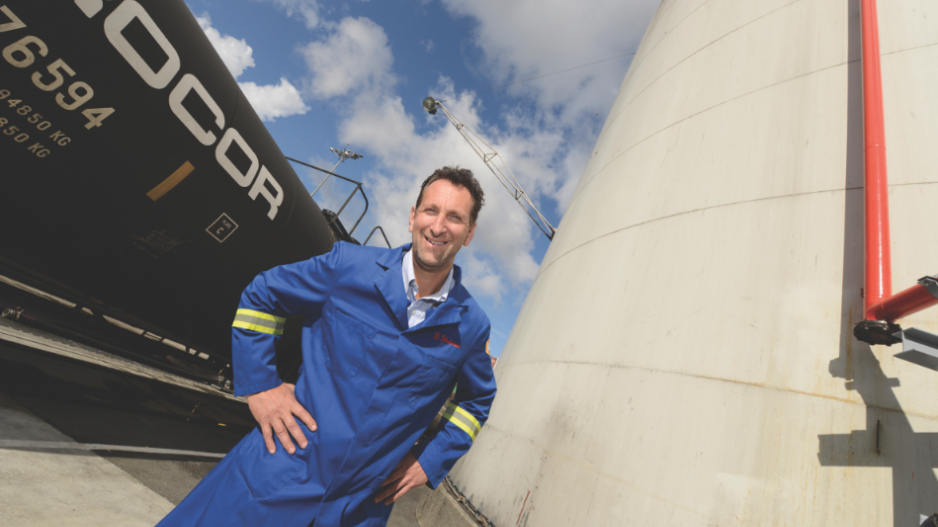Surging Asian demand for Canadian canola oil is fuelling investments at the Port Metro Vancouver as various players diversify operations and stray from their core business.
Pacific Coastal Terminals (PCT) is sinking $35 million into a project to build three tanks capable of holding a combined 45 million litres of oil and increase PCT’s liquid storage capacity by approximately 26%.
Wade Leslie, the company’s vice-president and general manager, told Business in Vancouver that he expects PCT’s tanks and new piping in Port Moody to be in operation before the end of the year.
All of that capacity is spoken for thanks to PCT signing a contract with large canola oil manufacturer Bunge Canada to store canola oil both for Bunge and Cargill Canada, Leslie added.
West Coast Reduction Ltd.’s (WCR) $9 million upgrade of railroad tracks and piping on its leased six-acre site at Vanterm is another significant investment aimed at increasing its canola-oil-handling market share.
“We could spend $10 million each year for the next 10 years [to increase canola oil handling capacity],” WCR CEO Barry Glotman told BIV. “What we’re doing right now is just the start.”
Spending so far has given WCR the capacity to simultaneously unload 24 railcars filled with canola oil and pipe it into giant white tanks, which can hold 84 million litres of the oil at the northern end of Commercial Drive. The oil is then loaded onto freighters.
A year ago, WCR could unload only 16 railcars at once.
Neither PCT’s nor WCR’s primary business is canola, so the investments diversify both ventures.
The primary business for PCT, which is owned by commodities and logistics company Sultran, is handling sulphur, which is created as a byproduct of oil and gas processing.
Meanwhile, about 90% of WCR’s $250 million in annual revenue comes from its rendering operations.
“The rendering side of our business is very mature,” Glotman said. “It’s the canola side which is where the growth is.”
WCR’s adeptness at spotting opportunity is legendary.
The 600-employee venture started in 1964, after B.C. entrepreneur, philanthropist and former Simon Fraser University chancellor Jack Diamond sold his Pacific Meats meat-packing company. He used that capital to found WCR along with his son Gordon Diamond, who is Glotman’s father-in-law.
Through the years, WCR has stuck its toe into various new ventures.
In the mid-1990s, for example, it branched into fish-rendering and opened a plant in Nanaimo. That added to its capacity to supply raw ingredients to aquaculture-feed manufacturers.
Another diversion came last year when WCR launched its Redux program. That arm of the company now sends employees to restaurants to clean grease out of drain traps and collect that grease for reuse.
Redux then sells the captured grease to biodiesel manufacturers to use as a raw ingredient.
Canola, however, is where Glotman sees his company’s future. He estimated that revenue from handling the comparatively nutritious oil could double by 2019.
“We’re the only independent tank farm for canola oil on the Canadian West Coast,” Glotman said. “There are competitors, such as PCT, but they’re not independent nor are they out there seeking new customers.”




